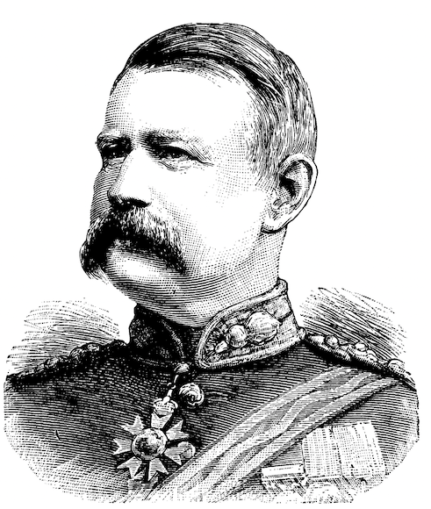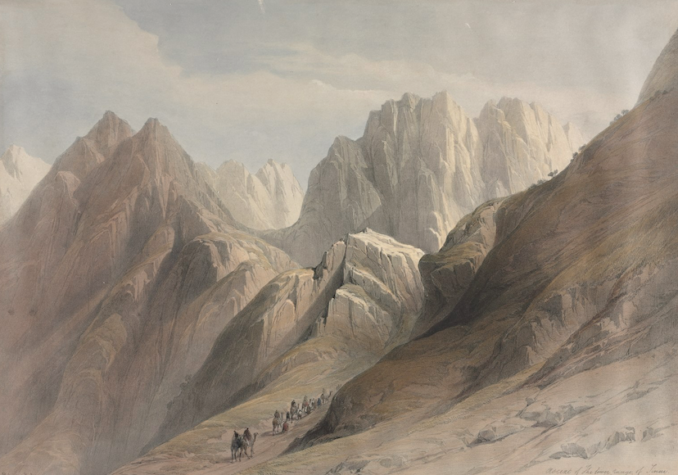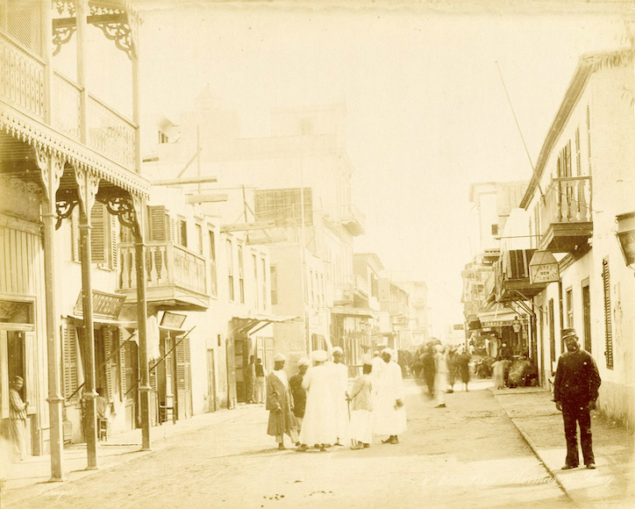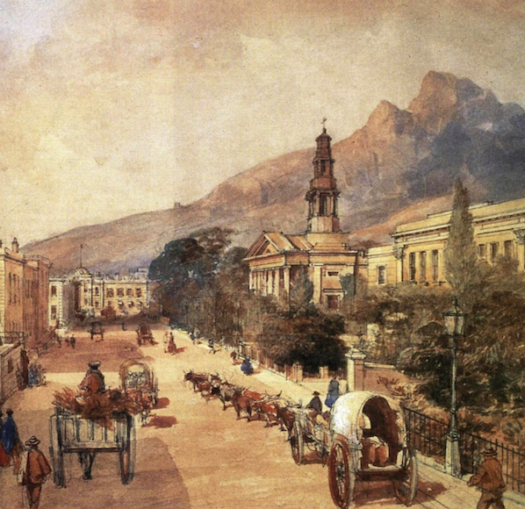They say you should never meet your heroes. Is this a recent phenomenon? Certainly, you’d be advised to make an excuse and leave if you think a chief constable is about to enter the room. In the strange times we live in, the head of the local constabulary may well be a pink-haired, early-middle-aged lady arm in arm with a lesbian nana. With an honours degree in Classics, and according to her website,Sarah Crew, head of Avon and Somerset, walks the dog, runs in half marathons and supports a charity aiding the victims of modern slavery. Not bothered about arresting criminals, Sarah believes, ‘Policing is about helping to create the conditions that help people and their communities to thrive and make life choices and opportunities better for everyone.’
Nicholas Adderley of Northamptonshire believes in pinning other people’s honour to his chest. Concerned onlookers challenged £165,000 a year Adderley when spotted wearing a Falklands War medal, a conflict during which he would only have been 15 years of age. Below the line, readers of various newspapers discovered in official photographs a pin suggesting a mentioned in dispatches in Northern Ireland – despite his claims to have been in the Navy. Hanging nearby, a long service medal indicative of joining the police force well before leaving school.
It has not always been so. Before the modern fad for recruiting from the pages of Viz, chief constables emerged from between the covers of the Old Testament or appeared from hillsides in distant parts of the Empire as if quarried. Sir Cyril James Anderton (Greater Manchester 1975-1991) opined at a national police conference, “Everywhere I go I see evidence of people swirling around in the cesspool of their own making. Why do homosexuals freely engage in sodomy and other obnoxious sexual practices knowing the dangers involved?”
After his recent passing aged 89, a Guardian newspaper obituary reminded us Anderton believed the police a means of providing moral enforcement against ‘social nonconformists, malingerers, idlers, parasites, spongers, frauds, cheats and unrepentant criminals.’ Legendary anecdotes include upon hearing of a gay ‘safe space’ along Manchester’s Canal Street, he dispatched a police boat to the said waterway armed with handcuffs and an outsized searchlight.
Puffins may be impressed, but at least one of his predecessors may have raised a sun-bleached cordite-stained finger of caution at the mention of Greater Manchester’s soppy liberal. Born in Bangor, Gwynedd, on 7th February 1840, Charles Warren entered a notable ecclesiastical and military family. His father, Major-General Sir Charles Warren was a distinguished soldier and a colonel of the 96th Foot. Grandfather John was the Dean of Bangor. A great uncle had been the archbishop.
Charles’s education took place at Bridgnorth and Wem grammar schools followed by a single term at Cheltenham College after which he enrolled at the Royal Military Academy, Woolwich. He took a commission in the Royal Engineers in 1857. Appropriate in Sir Charles’s case, the regiment, whose soldiers are called Sappers, serve under the motto ‘Ubique Quo Fas et Gloria Ducunt’ (Everywhere, Where Right and Glory Lead).

Engraved portrait of General Sir Charles Warren,
The Graphic Newspaper – Public domain
After assisting the reconnaissance survey of Gibraltar from 1861-1865 Sir Charles was posted to Palestine where his name became associated with the archaeological excavation of Biblical Jerusalem in connection with the Palestine Exploration Fund. In 1876 South Africa beckoned, Warren having been commissioned to lay down the boundary between Griqualand West and the Orange Free State after which he became Commissioner of lands in the former. If you’re wondering why bother with the dusty wasteland of Griqualand West, further research shows the capital to be Kimberley and the local regiment to be called the Diamond Fields Horse.
In the Kaffir War and Griqualand West rebellion of 1878, Warren commanded the Horse and in the same year led British troops against the Bechuanas. In 1880 he returned to England, his new position being Instructor of Surveying at the Royal Engineers’ HQ in Chatham. He remained for four years. By now promoted to colonel, two years into his term the Admiralty interrupted, curious as to the whereabouts of a Mr Edward Henry Palmer.
An interesting chap, a fellow of St John’s College, Cambridge, and Lord Almoner’s Professor of Arabic at the university, Palmer’s credits also included translating the New Testament into Persian, writing poetry in Romany and investigating the Beduin and the secret sects of Syria. Wife Augusta was a daughter of the Count von Lorge, a Polish gentleman resident in Lubeck. Despite an impressive track record in derring-do, Mr Palmer overstretched himself when on a mission to the Sanai’s El-Tih desert, with the Admiralty dispatching Warren to find Palmer’s missing party.
On 22nd October 1882, during a Nile-side dinner hosted by a Madame Fitzgerald, the Duke of Connaught, at that time the governor of Cairo, received a telegram. The investigations were complete. Captured by the governor of Nakhl, Palmer and his companions Gill and Carrington had been taken to the edge of a precipice and offered the alternative of throwing themselves over or being shot.

Ascent of the Lower Range of Sinai,
David Roberts – Public Domain
Palmer covered his eyes and jumped. The bullet-riddled bodies of Captian William Gill, R.E., and Lieutenant Harold Charrington, R.N., were recovered by Warren. Palmer’s were yet to be found. Four days later, the Foreign Office received the following: ‘Suez, Oct 26th, The remains of Captian Gill and Leuit Charrington have been found and identified. Of Professor Palmer nothing certain. The Beduins are very hostile, those compromised threatening to attack Col. Warren’s party.’ Warren ploughed on and after following a trail of looted baggage intercepted three Beduins, one of whom wore a tobacco pouch belonging to Charrington. The Beduin claimed the pouch a gift from Ali Murshed, Sheikh of Terebin, who became the prime suspect in the killing of the Palmer party.
A telegram sent to the Admiralty noted: ‘Hope to get him shortly, as we have captured his wife, children and sheep. Shall not reach Nakhl for a few days. Endeavouring to obtain persons implicated in this neighbourhood.’ By January of the following year, Warren himself reported from Suez of three suspected assassins now under lock and key at the Egyptian port. Palmer’s remains were found and now lie in St Paul’s Cathedral.

Rue Kormar, Suez,
Zangaki – Public domain
Warren’s service continued to revolve around Southern Africa, Sudan and Egypt. In 1884-85, he commanded the Bechuanaland Expedition to modern-day Botswana. Heading north from Cape Town and leaving the British Cape Colony, Warren led 4,000 men for the march north. The aim being to suppress incursions from the Boer republics of Stellaland and Goshen, German Southwest Africa and the Dutch Transvaal. A successful operation, after outfoxing Afrikaaner legend Paul Kruger, Warren dissolved the republics without bloodshed and created the British protectorate of Bechuanaland.
In January 1886 and by now a Major General, Warren found himself appointed to the command of Suakin, the major port of Sudan – unflatteringly described as a pestilential littoral of the Red Sea. His command consisted of the 6th Battery, 1st Brigade, Scottish Division, Royal Artillery; 1st Battalion Kings Shropshire Light Infantry and the 15th Bengal and 28th Bombay Native Infantry.
However, having mastered a plan by which the adjacent country might be pacified and opened up to trade, within weeks a recall appointed him control of the Metropolitan Police. Contemporary newspaper reports compliment Sir Charles as being firm, considerate, sagacious and capable. Caveats co-existed. Commentators worried of his liking of having his own way and worried of a repetition of the difficulties his predecessor in the role faced with Home Secretary Mr Hugh Childers – a cousin to IRA gun runner Erskine Childers.
On the morning of 29th March 1886, Warren arrived in Calais by the Indian mail and processed at 7:15 in the Dover steam packet for London. Two days later he took over from his struggling predecessor, Sir Edmond Henderson. The naysayers had it. Managing only two years, his shift included not solving the Whitechapel murders of Jack the Ripper and an out-of-control Trafalgar Square riot. However, in a measure of an interesting life full-lived, his commanding the country’s largest police force appears as the least of his roles.
From London, Warren sailed to command the British Army in the Straights Settlements. The Settlements being the ports and environs of the commercially and militarily strategic points of the Malay peninsular; namely Penang, Dinding, Malacca and Singapore. When back in England, he commanded the Thames district. By now it was close to 1898 and, in his 59th year, Warren’s next promotion was to lieutenant general and his placing was to the reserve list. At which point, sort of, and somewhat obliquely, Sir Charles crosses the Worth-Saying family line.
My father was a Royal Engineer and during his officer selection interview was asked which yacht club he belonged to. Assuming this a way of sifting toffs worthy of the pips from plebs like himself, he mumbled and muttered and allowed himself to become demoralised. Father should have done his prep! Watermanship is a competence useful to the sapper. Such a thing exists as a Royal Engineers Yacht Club (REYC). It was Sir Charles in 1899 while wearing his General Officer Commanding the Thames and Medway Canal peaked cap, who presented a challenge shield for an annual championship race on the River Medway between the Royal Engineers and the Royal Navy.
The sapper sailers still exist and appear to be thriving. The Senior Service will be relieved to be informed this year’s REYC calendar omits to mention a Warren Championship Shield. The sappers will be racing between Cowes and Yarmouth, dashing to St Malo, taking part in the Cherbourg Race and appearing at one or two other places Where Right and Glory Might Lead.

St Georges Cathedral Cape Town,
T Bowler – Licence CC BY-SA 2.0
When the Boer War broke out, Warren headed south and commanded the 5th division, South Africa field force. He would be involved in several significant engagements, including the Relief of Ladysmith and the Siege of Kimberley. During the campaign to relieve the besieged town of Ladysmith, Sir Charles was tasked with capturing the strategic Spion Kop hill. Although Warren’s forces took the hill, a counterattack by the Boers led to a British retreat. In the battle, which lasted two days, intense fighting resulted in high British casualties with 243 killed and 1,250 wounded. Warren was castigated for failures of judgment, delay and indecision which led to defeat at the hands of an inferior force of Boers.
Never to lead in the field again, Waren returned to England and filled a long retirement writing and taking an active interest in the founding of young men’s associations such as the Boy Scouts movement and Church Lads’ Brigade. His written works include a memoir of his earlier South African experiences based on contemporary journals and letters to his wife and children. He also wrote books on weights and measures.
Lady Warren was Fanny Margaretta Haydon. They married in 1864 and went on to have four children; daughters Violet and Charlotte, and sons Frank and Richard. Fanny pre-deceased her husband in 1919. Eight years later, Sir Charles died at Weston-super-Mare aged 86. After a Canterbury Cathedral funeral, his interment took place in Wingham Churchyard, halfway between Canterbury and the Channel coast at Sandwich Bay, beyond where lies:
Ubique Quo Fas et Gloria Ducunt
© Always Worth Saying 2024



